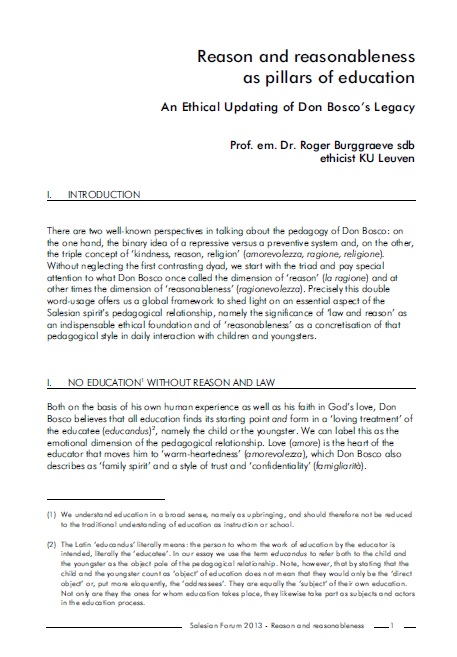There are two well-known perspectives in talking about the pedagogy of Don Bosco: on the one hand, the binary idea of a repressive versus a preventive system and, on the other, the triple concept of ‘kindness, reason, religion’ (amorevolezza, ragione, religione).
Without neglecting the first contrasting dyad, we start with the triad and pay special attention to what Don Bosco once called the dimension of ‘reason’ (la ragione) and at other times the dimension of ‘reasonableness’ (ragionevolezza). Precisely this double word-usage offers us a global framework to shed light on an essential aspect of the Salesian spirit’s pedagogical relationship, namely the significance of ‘law and reason’ as an indispensable ethical foundation and of ‘reasonableness’ as a concretisation of that pedagogical style in daily interaction with children and youngsters.
Indice
- Introduction
- No education without reason and law
- Pedagogical reasonableness
- Integral education as ‘Aesthetics’: the need for communities of participation
- Conclusion: reason and reasonableness give a realistic form to cordial affection
Reference time period: 1981 – 2012
R. Burggraeve, “Reason and reasonableness as pillars of education. An ethical updating of Don Bosco’s legacy“, in “Forum salesiano“, 16/01/2020, <https://sites.google.com/site/forumsalesianoitaliano/documenti/valdocco-torino-2013>. (Ultima consultazione: 17/05/2024).
